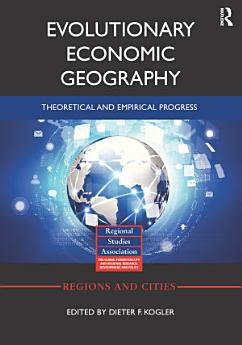Evolutionary Economic Geography: Theoretical and Empirical Progress
About this ebook
EEG highlights the important factors that initiate, inhibit, or consolidate the contextual settings and relationships in which regions and their respective agents, which comprise and shape economic activity and social reproduction, change over time. It has at its core the production and destruction of novelty in space, and the links between innovation and regional economic fortunes. The creation of knowledge, its movement and recombination within different regional ensembles of economic agents and institutions plays a critical role in the evolution of the space-economy. EEG provides a framework to disentangle the complexity of technological change and regional economic development based on a variety of theoretical and methodological approaches.
In only a short time, EEG has established itself as a promising and rapidly evolving research framework with its focus on the driving forces of regional development across various scales and its attempt to translate findings into public policy. This book advances the theoretical foundations of EEG, and demonstrates how EEG utilises and operationalises conceptual frameworks, both established and new. Contributions also point to future research avenues and extensions of EEG, attempting to build stronger ties between theory, empirical evidence, and relevance to policy. This book was originally published as a special issue of Regional Studies.
About the author
Dieter F. Kogler is a Lecturer in Economic Geography at University College Dublin, Ireland. His research focus is on the geography of innovation and evolutionary economic geography, with a particular emphasis on knowledge production and diffusion, and processes related to technological change and innovation. He is the co-editor of Global and Regional Dynamics in Knowledge Flows and Innovation (with Van Egeraat and Cooke, Routledge, 2014), and Beyond Territory: Dynamic Geographies of Knowledge Creation, Diffusion, and Innovation (with Bathelt and Feldman, Routledge, 2011).





